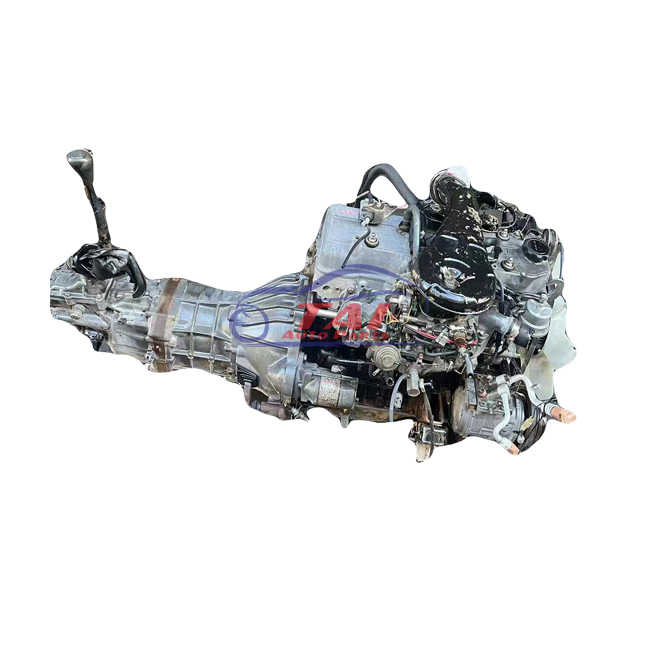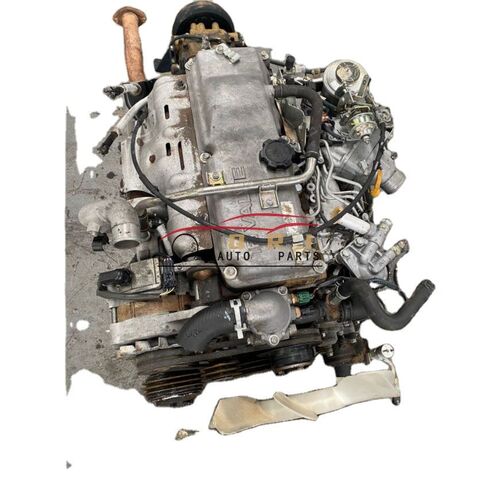Reviews and Insights Into the Toyota RunX RSI Driving Experience
Reviews and Insights Into the Toyota RunX RSI Driving Experience
Blog Article
Explore High Quality and Worth: Your Overview to Buying a Pre-owned Engine
When considering the purchase of a pre-owned engine, recognizing the detailed balance between high quality and value is vital. An extensive assessment of engine integrity, background, and condition is essential to guarantee a sound investment. By performing correct inspections and research study, prospective buyers can navigate the complexities of the market better. The subtleties of service warranty choices and prices techniques can considerably affect the general decision-making procedure. As you consider these elements, one question stays: what certain aspects will ultimately guide your choice in this important investment?
Comprehending Engine Types
When taking into consideration the acquisition of a pre-owned engine, comprehension of the different engine kinds is important for making an educated choice. Engines can usually be categorized right into 2 major types: inner burning engines and electrical engines. Internal burning engines, that include gas and diesel variants, rely on the combustion of gas to generate power. Fuel engines are generally lighter and rev greater, making them suitable for performance cars, while diesel motor are renowned for their torque and fuel performance, usually favored in sturdy applications.
On the various other hand, electrical engines utilize electrical energy stored in batteries to power the car, supplying a cleaner alternative with less moving components and lowered maintenance requirements. Within these groups, there are even more distinctions, such as two-stroke versus four-stroke inner burning engines, and different electric motor setups.
Recognizing these distinctions is vital, as they influence efficiency, compatibility with existing car systems, and long-lasting functional expenses. By familiarizing oneself with the various types of engines readily available, prospective customers can much better assess their demands and choose that straighten with their vehicle's needs and their individual choices.

Evaluating Engine Problem
A complete analysis of engine problem is paramount for any person considering the acquisition of a used engine. Start with a visual evaluation; check for signs of oil leakages, rust, or any type of physical damages to the engine block. A clean engine is typically a sign of great maintenance practices, while excessive crud may recommend disregard.
Following, assess the engine's elements, including the timing belt, gaskets, and seals. Look for damage, as these parts can be costly to change. Additionally, check out the engine installs, as damaged places might bring about resonances and additional mechanical concerns.
A compression test is important to assess inner engine health and wellness. Uniform compression throughout all cyndrical tubes indicates a well-maintained engine, whereas significant disparities may point to internal damages or wear.
Listening to the engine throughout a start-up can provide valuable understandings; any unusual sounds, such as rattling or knocking, may suggest deeper concerns. If feasible, request an examination run to examine performance under tons. By thoroughly assessing these variables, potential customers can make enlightened decisions and protect a quality second-hand engine.
Monitoring Engine Background
Recognizing the engine's background is important for making an educated acquisition. Understanding of previous use, maintenance documents, and any previous problems can substantially affect the engine's integrity and longevity. Begin by asking for this post the car recognition number (VIN) or engine serial number, which enables you to map the engine's background.
Make use of available resources, such as Carfax or AutoCheck, to get a vehicle history report. This record will provide essential insights, including mishap background, solution documents, and previous ownership details. Toyota RunX RSI. Pay specific interest to any kind of indicators of severe damage or repeated fixings, which might suggest underlying problems
Ask about upkeep routines carried out on the engine. Routine oil changes, timing belt replacements, and various other safety nets reflect responsible ownership. Additionally, ask if the engine has gone through any type of adjustments, as non-standard alterations can impact efficiency and compatibility with your vehicle.
Last but not least, if feasible, seek verification from a relied on auto mechanic moved here who can evaluate the engine's problem based on its history (Toyota RunX RSI). This detailed investigation will assist you make sure and prevent potential risks that your financial investment is sound and beneficial
Warranty and Return Policies
Acquiring a pre-owned engine usually comes with varying guarantee and return plans that can substantially impact your decision. When considering a used engine, it is vital to extensively evaluate the warranty choices given by the seller.

Additionally, respectable vendors commonly offer paperwork that lays out the warranty and return procedure, making certain openness. Constantly ask for this info prior to completing your acquisition. A well-defined guarantee and return plan can supply satisfaction and safeguard your financial investment, making it an essential part of the decision-making process when getting a second-hand engine.
Finding the Ideal Deals
When looking for the finest offers on a used engine, it is vital to carry out complete research study and compare costs from various sellers. Beginning by discovering on-line industries, vehicle online forums, and local salvage lawns to gather a comprehensive understanding of the market. Using cost comparison devices can improve this process, highlighting competitive prices across different platforms.

Think about timing your acquisition tactically. Seasonal fluctuations sought after can affect prices, with specific times of the year offering much better offers. Additionally, be open to discussing prices; numerous sellers might be prepared to decrease their asking rate, specifically if the engine has been listed for a prolonged duration.
Conclusion
In summary, buying a used engine demands a thorough analysis of top quality and worth. Get More Info Evaluating engine condition via examinations and examinations, verifying its background, and comprehending guarantee and return plans are vital actions.
When taking into consideration the acquisition of a used engine, understanding of the various engine types is important for making an informed decision. Engines can typically be classified into two main kinds: inner burning engines and electrical engines. Gas engines are usually lighter and rev greater, making them ideal for efficiency cars, while diesel engines are renowned for their torque and gas performance, usually preferred in durable applications.
An extensive assessment of engine condition is extremely important for any person thinking about the acquisition of a pre-owned engine. Start by requesting the lorry identification number (VIN) or engine serial number, which permits you to map the engine's background.
Report this page